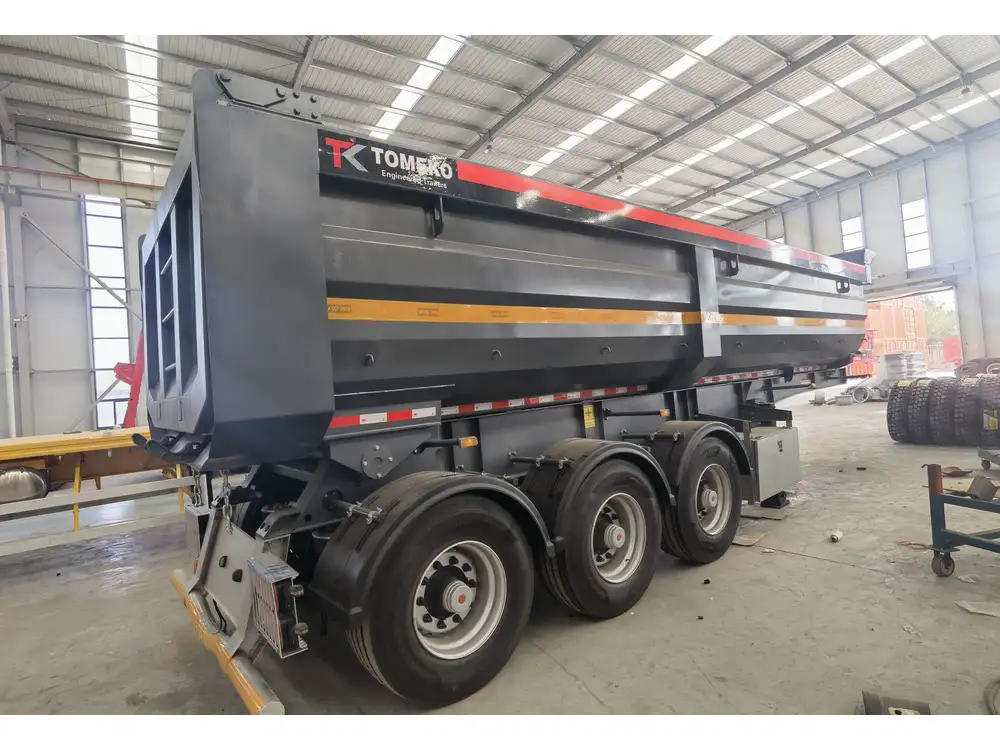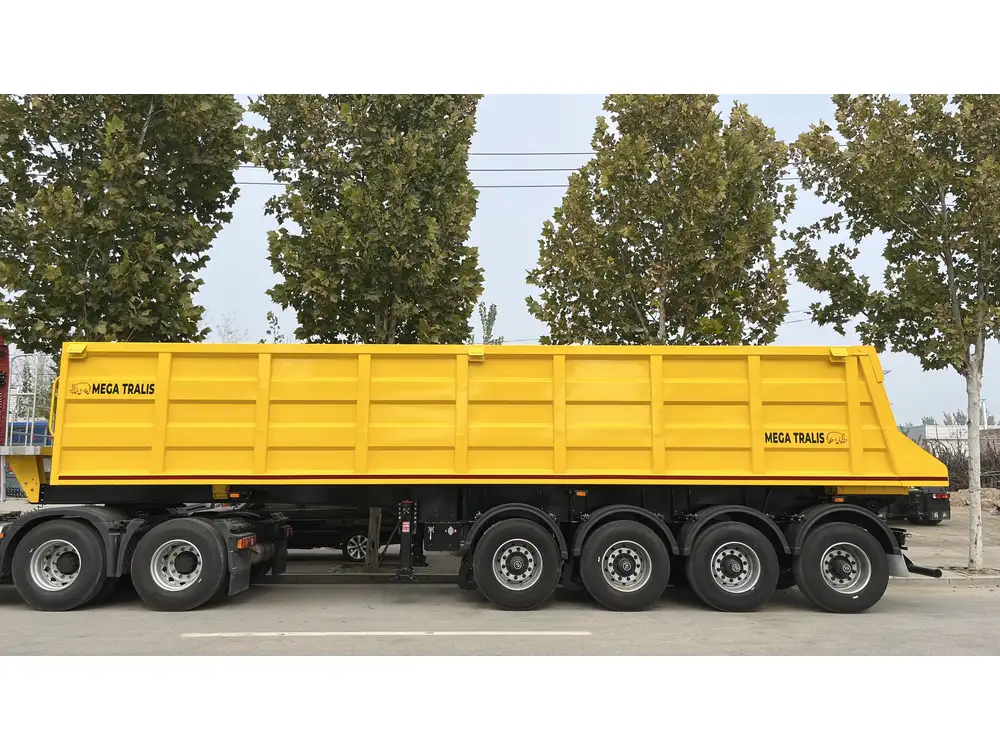Navigating the world of logistics and transportation can be complex, especially when it comes to understanding the legal requirements associated with hauling different types of trailers, such as dump trailers. A common question that many ask is: “Do I need a CDL to haul a dump trailer?” To adequately answer this inquiry, we will delve into the regulatory frameworks, definitions, and practical implications surrounding commercial driving licenses (CDLs) and dump trailers.
Understanding the Role of CDLs in Hauling Vehicles
What is a CDL?
A Commercial Driver’s License (CDL) is a specialized license required to operate commercial motor vehicles (CMVs). This includes not only large trucks but also vehicles designed to transport passengers or those that transport materials that require specific handling. The federal and state government establishes requirements for obtaining a CDL to ensure that drivers meet certain safety and competency standards.

Types of CDLs
The three classes of CDLs are as follows:
| CDL Class | Vehicle Weight Requirement | Purpose |
|---|---|---|
| Class A | Vehicles with a gross combination weight rating (GCWR) of 26,001 pounds or more, towing a vehicle exceeding 10,000 pounds. | Allows operation of any combination of vehicles (e.g., tractor-trailers). |
| Class B | Single vehicles with a gross vehicle weight rating (GVWR) of 26,001 pounds or more. | Generally for straight trucks (e.g., buses, box trucks). |
| Class C | Vehicles designed to transport 16 or more passengers or hazardous materials. | For smaller vehicles that may not fall into Class A or B. |
When is a CDL Required for Dump Trailers?
The requirement for a CDL to haul a dump trailer hinges on various key factors, including but not limited to:
Trailer Weight: If the dump trailer’s total weight, when loaded, combined with the towing vehicle surpasses the 26,000-pound threshold (total gross vehicle weight rating or GVWR), a CDL will generally be required.
Combination Vehicles: If you are towing a dump trailer with a truck and the gross combination weight rating (GCWR) exceeds 26,001 pounds, you will need a Class A CDL.
State Regulations: Each state has its own set of rules governing CDL requirements. For instance, some states allow haulers of lighter trailers to operate without a CDL, while others may impose additional restrictions based on local laws.
State-Specific Requirements
It’s essential to understand that laws governing CDLs can vary significantly by state. Here’s a brief overview of how different states approach the need for a CDL when hauling dump trailers:
| State | CDL Requirement for Dump Trailers |
|---|---|
| California | Requires a Class A if GCWR exceeds 26,000 pounds. |
| Texas | Class A is needed if the total weight of the combination is 26,001 pounds or more. |
| Florida | CDL required if the total weight exceeds 26,000 pounds. |
| New York | Follows federal guidelines and requires a CDL as per weight criteria. |
| Illinois | Specific weight limits apply; check local regulations. |

The Practical Side of Hauling: What You Need to Know
Considerations Before Hauling a Dump Trailer
Weight and Load Management: Always confirm the combined weight of your vehicle and trailer. Utilizing scales is one of the best practices for maintaining compliance.
Safety Regulations and Equipment: Properly securing loads while adhering to safety regulations is essential to prevent accidents and legal issues.
Insurance Requirements: Ensure you have the right insurance coverage; some insurers require a CDL for specific types of transport.
Operating a Business: If hauling dump trailers as part of a business, regulations may demand proper licensing, regardless of weight.
Additional Questions You Might Have
What if I Only Haul Occasionally?
- If you are an infrequent hauler or only use a dump trailer for personal projects, the weight limits and local rules will determine if a CDL is necessary.
How Do I Obtain a CDL?
- Acquiring a CDL involves passing written, skills, and road tests. It’s advisable to undergo training at a licensed institution.
Are There Alternatives to CDLs?
- If your operation regularly involves vehicles below the CDL threshold, consider obtaining a non-commercial driver’s license and sticking to lighter vehicles.

Key Benefits of Understanding CDL Requirements for Dump Trailers
Grasping the intricacies of CDL requirements offers numerous advantages:
Avoiding Legal Penalties: Driving without the required CDL can lead to hefty fines and potential legal action. Understanding your needs puts you on the right side of the law.
Improved Safety: Familiarity with CDL regulations also fosters an environment of enhanced safety. CDL training includes essential driving skills and knowledge of traffic laws.
Professional Reputation: Businesses that comply with all legal obligations enhance their reputation and trustworthiness with clients, leading to greater opportunities.
The Documentation You Should Prepare
When preparing to haul a dump trailer, it’s advisable to gather and maintain specific documentation:
Vehicle Registration: Keep up-to-date registration for both your truck and trailer.
Insurance Documents: Document any insurance coverage, as many companies may require proof.
CDL and Driving Records: Ensure your CDL is valid and monitor your driving history for any issues.
Bill of Lading: If transporting materials for a business, always have a bill of lading for accountability and traceability.
The Importance of Compliance and Ongoing Education

Staying Up-to-Date with Regulations
As laws can frequently change, haulers must remain informed about any legal adjustments. Regularly consulting the Department of Motor Vehicles (DMV) or an equivalent state organization ensures that you remain compliant.
Attending Training Sessions
Many organizations and private entities offer CDL training courses that not only cover licensing but ongoing education on changes in regulations and best practices for trailer hauling.
Conclusion: Navigating the CDL Maze for Dump Trailers
In summary, whether you need a CDL to haul a dump trailer primarily hinges on the total weight and specific state regulations. A thorough understanding of your vehicle’s gross weight, coupled with knowledge of local laws, is crucial to ensuring compliance while maximizing safety.
Driving a dump trailer without due diligence can expose you to a host of legal complications, from hefty fines to suspension of your driving privileges. By gathering relevant documentation, undergoing training, and staying informed about state regulations, you will position yourself, or your business, for success in the competitive world of transportation and logistics.
By taking proactive measures and maintaining a commitment to safety and legal adherence, you not only safeguard your operations but also pave the way for future opportunities within this evolving industry. Don’t hesitate to consult with legal professionals or transportation experts if you have lingering questions regarding your specific circumstances and requirements.



